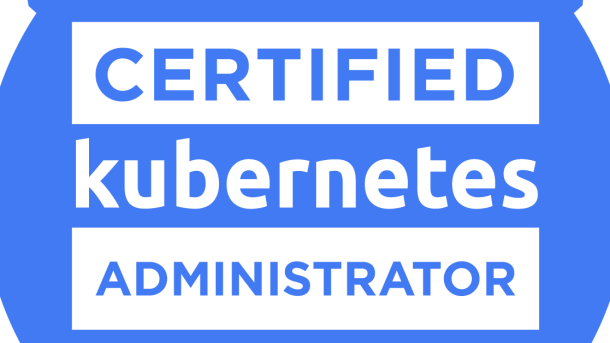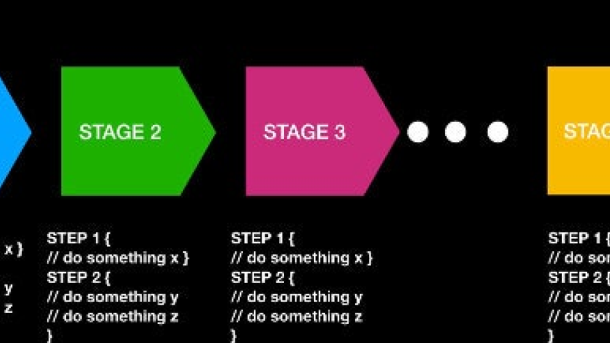In today’s digital age, protecting sensitive information online has become more important than ever. Online cybersecurity courses with certificates offer individuals the opportunity to enhance their skills and knowledge in preventing cyber attacks and securing data.
Introduction to Cybersecurity
Online cybersecurity courses with certificates offer a convenient and flexible way to enhance your skills in **cybersecurity**. These courses cover a wide range of topics including **network security**, **data security**, **encryption**, and more. By completing these courses, you can gain valuable knowledge and practical skills that are essential in today’s digital world.
One popular platform for online cybersecurity courses is **Linux**. Linux training courses provide hands-on experience with Linux-based systems, which are widely used in the cybersecurity field. You will learn how to secure Linux servers, set up firewalls, and implement security best practices to protect against **malware** and other threats.
In addition to Linux training, online cybersecurity courses may also cover topics such as **penetration testing**, **vulnerability assessment**, and **incident response**. These courses are designed to help you develop the skills needed to identify and mitigate security risks in a variety of environments, from small businesses to large enterprises.
Completing online cybersecurity courses with certificates can also enhance your job prospects and open up new career opportunities. Employers often look for candidates with certifications in cybersecurity, as they demonstrate a commitment to professional development and a strong understanding of security principles.
Whether you are new to cybersecurity or looking to advance your career, online courses offer a convenient and cost-effective way to gain the skills and knowledge you need to succeed in this fast-paced field. With the right training and certifications, you can position yourself as a valuable asset in the ever-evolving world of cybersecurity.
Encryption and Cryptography
These courses cover topics such as **public-key cryptography** and **encryption protocols** to secure data transmission over computer networks. You will also learn about different types of encryption keys and how they are used to encode and decode information securely.
With the increasing threat of cyber attacks and data breaches, it is important for individuals and organizations to implement strong encryption practices to safeguard their digital assets. By enrolling in cybersecurity courses, you can acquire the skills needed to secure your systems and networks effectively.
Whether you are a beginner or an experienced professional in the field of cybersecurity, these courses offer valuable insights into the latest encryption technologies and best practices for data protection. Upon completion, you will receive a certificate that validates your expertise in encryption and cryptography, enhancing your credibility in the industry.
Don’t miss this opportunity to enhance your cybersecurity skills and stay ahead of potential threats. Enroll in online courses today and become proficient in encryption and cryptography to secure your digital assets effectively.
Malware Prevention and Detection
When it comes to online cybersecurity courses, understanding how to prevent and detect malware is crucial. Malware, or malicious software, can wreak havoc on your computer network and compromise sensitive information. By learning about malware prevention and detection, you can better protect your systems and data from cyber threats.
One important aspect of malware prevention is keeping your operating system and software up to date. Regular updates often include security patches that can help protect against vulnerabilities that malware may exploit. Additionally, installing and maintaining a firewall can help block unauthorized access to your computer network, reducing the risk of malware infections.
Detection of malware involves using tools such as antivirus software to scan for and remove malicious programs. Regular scans can help identify and eliminate threats before they cause significant damage. It’s also important to educate yourself and your team about common malware threats, such as phishing emails and drive-by downloads, to help prevent infections in the first place.
Taking online cybersecurity courses that cover malware prevention and detection can provide you with the knowledge and skills needed to protect your systems effectively. Look for courses that cover topics such as threat detection, malware analysis, and incident response. By staying informed and proactive, you can better defend against cyber threats and keep your systems secure.
Internet and Network Communication
Online cybersecurity courses offer a valuable opportunity to enhance your knowledge and skills in internet and network communication. These courses provide comprehensive training on various aspects of network security and cybersecurity, including identifying and mitigating threats, implementing security measures, and securing data and communications across the Internet.
By enrolling in these courses, you can gain hands-on experience with tools and technologies such as firewalls, virtual private networks (VPNs), and encryption protocols. You will also learn about common cybersecurity threats and vulnerabilities, as well as best practices for protecting networks and data from malicious actors.
Upon successful completion of an online cybersecurity course, you will receive a certificate that demonstrates your proficiency in network security and cybersecurity concepts. This certificate can be a valuable asset in your career development and can help you stand out to potential employers in the information technology (IT) field.
Whether you are a system administrator, software developer, or IT professional looking to enhance your cybersecurity skills, online courses offer a flexible and convenient way to learn at your own pace. With a focus on practical skills and real-world scenarios, these courses provide a valuable foundation for securing networks and protecting data in today’s cybersecurity landscape.
Take the first step towards a rewarding career in cybersecurity by enrolling in an online course today. Whether you are new to the field or looking to advance your existing skills, these courses offer a valuable opportunity to learn from industry experts and gain practical experience in internet and network communication.
Data Protection and Privacy
Learning about **encryption**, **firewalls**, and **intrusion detection systems** will help you identify and prevent potential threats to your system. Understanding **phishing** techniques and **malware** attacks will also be essential in protecting your data from cybercriminals.
Moreover, gaining knowledge about **public key infrastructure**, **public-key cryptography**, and **public key certificates** will enhance your ability to secure communication channels and authenticate users effectively. Implementing **data loss prevention software** and **endpoint security** measures will further strengthen your defenses against data breaches.
By completing these cybersecurity courses, you will be able to assess vulnerabilities, conduct **penetration tests**, and implement security measures to mitigate risks effectively. Understanding **information privacy** laws and regulations will also be crucial in ensuring compliance and protecting sensitive data.
Cybersecurity Laws and Regulations
By enrolling in a cybersecurity course, you can learn about essential tools and technologies such as firewalls, virtual private networks, and data loss prevention software. Understanding how these tools work is crucial for protecting sensitive information and maintaining a secure network. Additionally, courses may cover topics like endpoint security and intrusion detection systems to help you identify and respond to potential threats.
Cybersecurity courses can also provide insight into various operating systems and platforms, such as Microsoft Windows and MacOS. Learning how to secure these systems effectively is essential for safeguarding your data and preventing unauthorized access. Moreover, courses may delve into cloud management and virtualization to help you understand how to secure data stored in the cloud and on virtual machines.
In addition to technical skills, cybersecurity courses often touch on risk management and information privacy. Understanding how to assess and mitigate risks is essential for protecting your organization’s data and ensuring compliance with relevant laws and regulations. Courses may also cover topics like communication protocols and public key infrastructure to help you secure your network and ensure secure communication.
Risk Analysis and Management
Effective risk analysis involves evaluating the likelihood of a threat occurring and the potential impact it could have on a system. By understanding vulnerabilities in an ***operating system*** or network, individuals can proactively implement security measures to mitigate risks. Courses that cover topics such as ***firewalls***, ***intrusion detection systems***, and ***data security*** can help individuals learn how to protect systems from cyber threats.
In addition to identifying and assessing risks, effective risk management involves developing strategies to address and mitigate those risks. By learning about risk management principles and best practices, individuals can create effective risk management plans to protect systems from potential threats. Courses that cover topics such as ***dynamic host configuration protocol***, ***virtual private networks***, and ***cloud management*** can provide individuals with the knowledge and skills needed to manage risks effectively.
Course Accreditation and Developers
Course accreditation is crucial when choosing an online cybersecurity course. Look for programs that are recognized by industry leaders like CompTIA or EC-Council. These accreditations ensure that the course meets high standards and will provide you with valuable skills.
Developers behind the course are also important to consider. Check their credentials and experience in the cybersecurity field. Courses developed by industry experts or professionals with real-world experience are more likely to be comprehensive and practical.
Before enrolling in a course, **research** the accreditation and developers to ensure you are investing your time and money wisely. A reputable course will provide you with a certificate upon completion, which can be valuable when applying for jobs in the cybersecurity field.
It’s also important to consider the **specific topics** covered in the course. Look for programs that cover a wide range of cybersecurity concepts, such as network security, encryption, and threat detection. This will give you a well-rounded understanding of cybersecurity principles.
Be wary of courses that focus on outdated technologies or concepts. Cybersecurity is a rapidly evolving field, so you want to make sure you are learning the most up-to-date information.
Frequently Asked Questions
| Question |
Answer |
| What are online cybersecurity courses? |
Online cybersecurity courses are courses that are offered over the internet and focus on teaching individuals about cybersecurity principles, practices, and tools. |
| Do online cybersecurity courses offer certificates? |
Yes, many online cybersecurity courses offer certificates upon completion to validate the individual’s knowledge and skills in cybersecurity. |
| Are online cybersecurity courses suitable for beginners? |
Yes, there are online cybersecurity courses available for beginners that provide a foundational understanding of cybersecurity concepts. |
| How long does it take to complete an online cybersecurity course? |
The duration of online cybersecurity courses can vary depending on the course provider and the depth of the content, but typically range from a few weeks to a few months. |
| Are online cybersecurity courses recognized by employers? |
Many employers value online cybersecurity courses and certificates as they demonstrate a commitment to learning and improving cybersecurity skills. |









